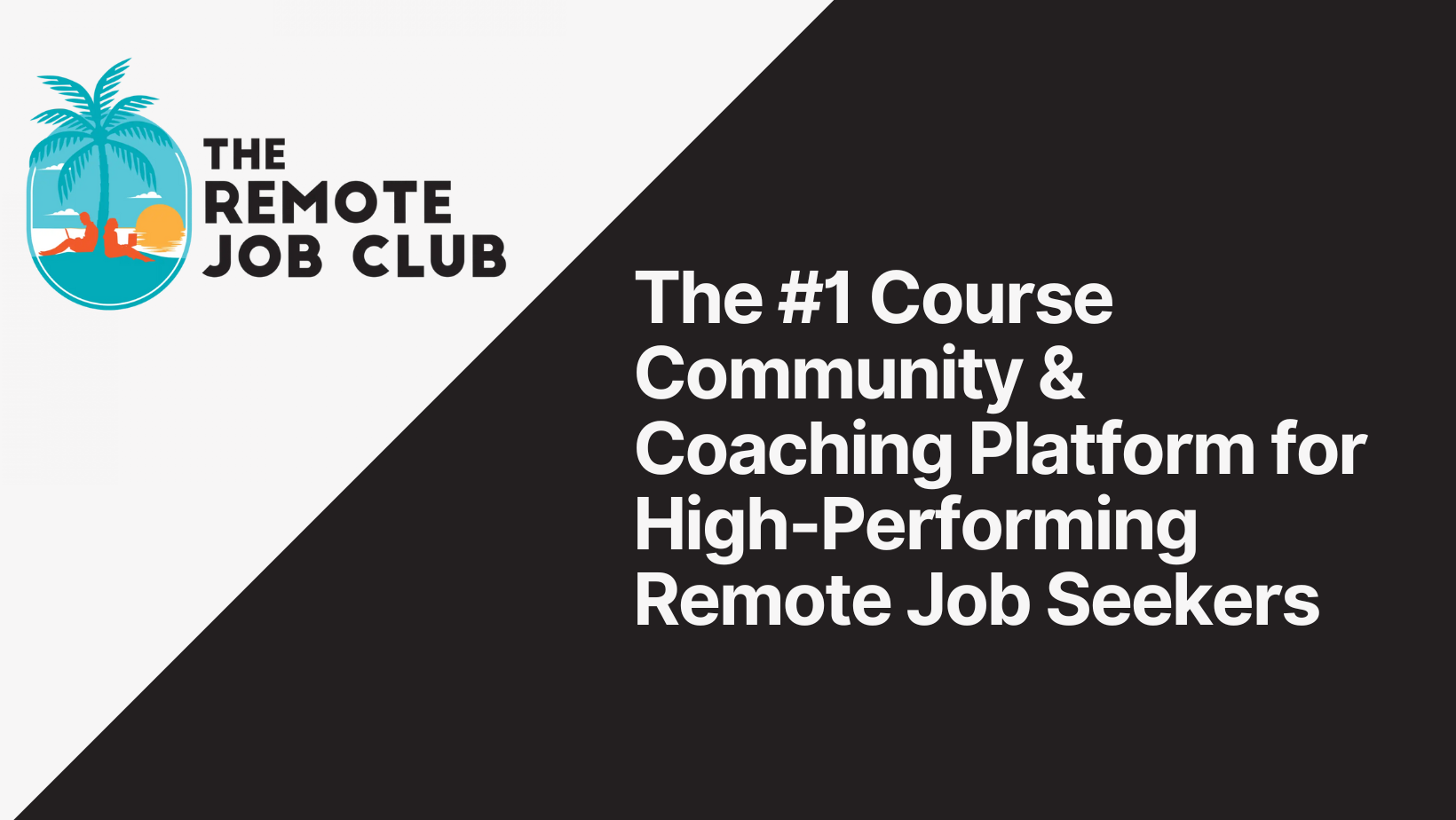What is a Digital Nomad Visa and How Do You Get One?
In this article, I’ll tell you everything you need to know about digital nomad visas, where and how you can get one, and even some bold predictions about the future of digital nomadism from experts in the field who are working with countries right now to enact these visas.
Why Digital Nomad Visas Are Needed
Because of COVID and the acceleration of remote work, more people than ever will be looking to take their job with them while traveling.
I expect once restrictions have fully subsided, we'll see the biggest boom of digital nomadism in history.
And a lot of these people are interested in living in these countries for 6-12 months (or longer) at a time.
But, if you've ever traveled abroad while working remotely, you’ve experienced the muddled area of legality when doing so, especially for these longer stints.
That’s because when you enter a country, you usually fill out a visa form classifying your visit as work, school, or tourism.
As a digital nomad going somewhere for weeks or months at a time, it's confusing how to answer that question truthfully, because you are working… but you're not taking a job in that country’s economy.
COVID changed everything.
It made remote work necessary in many regions where people, just months prior, didn’t even know what it was.
I've been traveling and working in different countries since early 2018. I vividly remember explaining my online business and how I worked remotely to an immigration officer upon arriving to a country in Eastern Europe.
His eyes glazed over like a Krispy Kreme donut.
And it wasn't the only time it happened. This is why I'm so excited to see countries adopt digital nomad visas. These pieces of legislation are creating a massive shift at the intersection of legality, travel, and work.
what is a digital nomad visa?
“A digital nomad, or remote working visa, is a type of permit to live and work in a foreign country, usually without being subject to that nation's tax laws, and without having to immigrate or apply for residency/citizenship.” - Travel Off Path
This type of visa allows online professionals to come in and stay longer than traditional tourist visas since they aren't classified as just “tourists.”
The concept is about encouraging people to become long-term guests of a country to help stimulate the economy, especially after the loss of tourism revenue from COVID. By bringing in someone on a digital nomad visa, the lifetime value of their tourism revenue is much higher.
What is the Difference Between Digital Nomad Visas and Tourist Visas or Residency?
Now I want to be clear as well, there are some countries that don't offer a digital nomad visa, but have more relaxed policies when it comes to tourist visas, or offer an appealing path to residency.
I have my temporary residency card here in Mexico, which gives me a full year, which is about the same amount of time as most of the digital nomad visas. Then after my one-year renewal, I get another 3 years, and then I become a permanent resident at that point, never having to reapply again.
But there's a key difference.
Countries with a digital nomad visa are eager to invite people to apply, it feels like they are literally competing for guests to come and visit and live in their countries.
During the application for my Mexican residency, however, I didn't feel wanted at all. In fact, during the interview with the immigration officer, he seemed downright infuriated at my existence.
I 100% thought there was no way he was going to give me my card, but then I realized that's what immigration officers are trained to be like. And it's another reason I'm excited about digital nomad visa programs because they are changing the relationship between immigration and potential residents.
Other than my example with Mexico, another example is Spain, which doesn't yet have a digital nomad visa, but my good friend Chase Warrington, the Head of Biz Dev of Doist lives there.
Chase Warrington, Head of Biz Dev at Doist
Chase obtained the Non-lucrative visa in Spain which was originally created for retirees and those earning a pension from their home country. However, since he makes a high enough salary from his employer, Doist, remotely, he was able to qualify. He’s been there for 3 years and recently renewed. After 2 more years, he has to transition to another visa.
In many countries, there is still this grey area. I definitely recommend checking out the countries with actual digital nomad visas or remote work programs because:
Their governments are on the cutting edge of innovating in this time of change
They are super excited and appreciative of long term guests (for the most part)
Which Countries Have Digital Nomad Visas?
I want to preface this information that it's been tough to find an accurate list. There are a lot of different sites out there listing countries that don't actually have a digital nomad visa, but they either have a residency option or longer tourist visas, which I explained above.
Nonetheless, as of right now, here are the countries I know to have a digital nomad visa, and if I missed any or I'm wrong, please let me know in the comments, but keep in mind this is constantly changing.
Each is also linked to the government website in case you want more specifics about the programs:
(Duration: 12 mo | App Cost $2k | Income Req: None)
Antigua and Barbuda: Nomad Digital Residence
(Duration: 2 yrs | App Cost $1,500 | Income Req: $50k/yr)
(Duration: 12 mo | App Cost: $2k | Income Req: Make $50k/yr)
(Duration: 12 mo | App Cost: $263 | Income Req: None)
(Duration: 12 mo | App Cost: $1,025 | Income Req: None)
Cabo Verde: Remote Working Cabo Verde
(Duration: 6 mo | App Cost: €54 | Income Req: €1,500/mo)
Cayman Islands: Global Citizen Programme
(Duration: 2 yrs | App Cost: $1,469 | Income Req: $100k/yr)
Croatia: Digital Nomads Croatia
(Duration: 12 mo | App Cost: $142 | Income Req: $32,935)
(Duration: 12 mo | App Cost: $294 | Income Req: None)
(Duration: 18 mo | App Cost: $1,200 | Income Req: $50,000)
Dubai: Work Remotely From Dubai
(Duration: 12 mo | App Cost: $287 | Income Req: $5,000/mo)
(Duration: 12 mo | App Cost: €100 | Income Req: €3,504/mo)
Georgia: Remotely From Georgia
(Duration: 12 mo | App Cost: None | Income Req: $2,000/mo)
(Duration: 6 mo | App Cost: $65 | Income Req: $8,298/mo)
(Duration: 12 mo | App Cost: €300 | Income Req: €2,700/mo)
(Duration: > 6 mo | App Cost: None | Income Req: €1,300/mo)
(Duration: 12 mo | App Cost: $500 | Income Req: $70,000)
Seychelles: Workcation Retreat
(Duration: 12 mo | App Cost: €45 | Income Req: Unknown)
There are also countries that have freelancer visas, long term tourist visas, or other programs potentially worth checking out: Costa Rica, Germany, Mexico, Spain, Portugal
And some which are in progress:
Aruba (only 3 mo and restricted to US citizens), Belize, Colombia, Greece, Indonesia, Romania, South Africa, Thailand
I'm sure I'm missing some, but I think what we’ll see in the next 10 years, is that if a country is not offering options catering to digital nomads, they will struggle with tourism revenue.
How Do You Apply for a Digital Nomad Visa?
Different countries have different policies as these are non-standard pieces of legislation, and they have very different names depending on the country (as you can see above).
Usually, there is some type of foreign income requirement because these countries want to see that you'll be able to sustain yourself for the duration of your stay, there are application fees, and various other criteria.
One of my friends and former clients Kevin has experience with the Barbados Digital Nomad Visa.
Kevin Heaney, Blockchain Developer & Data Scientist
Kevin was accepted into the Barbados digital nomad visa program, also known as the “Welcome Stamp.” He found the process to be incredibly easy, and once he was in Barbados, felt like an inclusive community awaited him. The reception he received felt very different from a normal tourism visit. You can find more information about the welcome stamp above in this article in the “Barbados” section.
As mentioned, I worked with Kevin to help him in his journey to working fully remote to make the move to Barbados. You can check out his testimonial of us working together here.
Now, we've gone over what the digital nomad visa is, which countries offer them, and how to get one.
There's got to be a catch right?
Well, like any massive change, there's going to be some side effects.
Let's go through some pros and cons about digital nomad visas so you can get a better picture of it they are right for you.
Pros of digital nomad visas
Digital Nomad Legality: There are already people coming to these countries to work and live already -- so actually formalizing and recognizing digital nomadism is a good thing for legal protection.
Sustained Tourism Revenue: Especially for countries that lost tourism revenue during COVID, the visas give them an injection of income for sustained periods to help them build a more stable economy.
Partnerships for Local Businesses: The local businesses and individuals, not just the government, stand to benefit from creating offerings for the nomads, and partnerships with the program.
Where integrated correctly, these visas can be a win-win-win for the government, nomads, and locals. But there’s a larger conversation to be had in order to make that happen. Each of the parties is working in self-interest, and if they are not on the same page, there will be difficulty in balancing the needs of each.
Cons of digital nomad visas
Tension Between Nomads and Locals: Now I'm an optimistic person, but I'm also realistic, there are going to be a lot of cases, especially early in these programs, where tension is created between locals and nomads. Many people in the digital nomad community who are focused on partying, exploiting lower cost of living, and don’t necessarily respect the culture.
Higher Cost of Living for Locals/Gentrification: As nomads bring their foreign income into the country, it will simultaneously increase prices for locals, and cause gentrification. This is a cyclical thing that happens all over the world and can be an unintended consequence of introducing these programs.
Lack of Community Connection (Without Leader): Without a community leader, or direct connection to the locals, these programs will have difficulty facilitating the connection between the different parties. That can lead to a poor experience, misunderstandings, and lack of success in a program.
But not all is bad, I do have hope for these visas ushering in a new wave of innovation and interesting developments in multiple industries. The future is bright in a world with less red tape.
What is the Future of Travel and Work (& Digital Nomad Visas)?
Prediction #1: A lot more countries will create digital nomad visas.
A few people I interviewed for this article are folks with direct contact to those working on the digital nomad visas, or have involvement themselves in helping to push progress forward.
Marcela Fernandez, Brand Ambassador of Selina
Marcela mentioned a company called World Tech, which pioneered the Estonia Digital Nomad Visa, as the main leaders working with the Colombian government to help pass the visa. She anticipates by the end of 2021 there will be a visa in Colombia specifically catered toward digital nomads, and possibly an announcement as soon as the summer.
Olúmidé Gbenro, Founder of Globoversity
Olúmidé Gbenro has been working with a local contact, Diego, and others to push the digital nomad visa forward to the Indonesian government. They’ve received the formal documents and acknowledged them. Olúmidé, who is a publicist, has also been using his professional skills to leverage social media to drive change through a petition nearing 5k signatures which you can sign here.
Prediction #2: More services and projects will cater to nomads.
Nomads, because of their economic implication, will require more specialized services and projects. The companies ready to take advantage of this will be rewarded handsomely! One of those projects is the Digital Nomad Village in Madiera lead by my friend Gonçalo Hall. This unique pilot project blends digital nomads with local businesses, turning it into a community of people that have a strong positive impact in the village, both socially and economically.
Gonçalo Hall, Creator of Digital Nomad Village Madeira
Gonçalo was adamant with me that The Digital Nomad Village is simply a community. As a master global community builder, he is the best in the world at bringing people together both virtually and physically. The village is in its first year of creation but will continue beyond that after the successful pilot. He maintains the key to any digital nomad project is a community leader from the local region who can successfully bridge the gap between locals and nomads. We’ll likely see other abandoned villages have resurgences because of programs like this.
Prediction #3: Countries, regions, and cities will need to fight for residents.
Overall, the process will become easier to move about. I think we'll see less red tape while traveling and a more borderless society. Government is far far behind technology, and it always will be, but we're seeing the generations who’ve lived with technology their entire lives move into governmental power. It will be necessary to create legislation using technology.
There are projects like Plumia, an organization that aims to be the first “country on the internet” and provide infrastructure for living anywhere with the function of a geographic country.
UPDATE: CHECK OUT THIS DIGITAL NOAMD VISA DATABASE FROM MY FRIEND LILYY!
There are other programs where cities will actually pay you to move there!
It's an exciting time for digital nomadism and the intersection of work, travel, and legislation.
But I'm curious, what was the most interesting part of this article for you? Leave me a comment below and let me know what you're excited about in the future of work and travel.
Looking to become a digital nomad yourself, but don’t know how to find remote work? Check out The Remote Job Club, a subscription service for remote job seekers to give them all the tools and guidance to discover their own personal freedom through remote work.
Click below to join the club for free and get access to exclusive jobs in my network, including those that can be done 100% remotely anywhere in the world.











